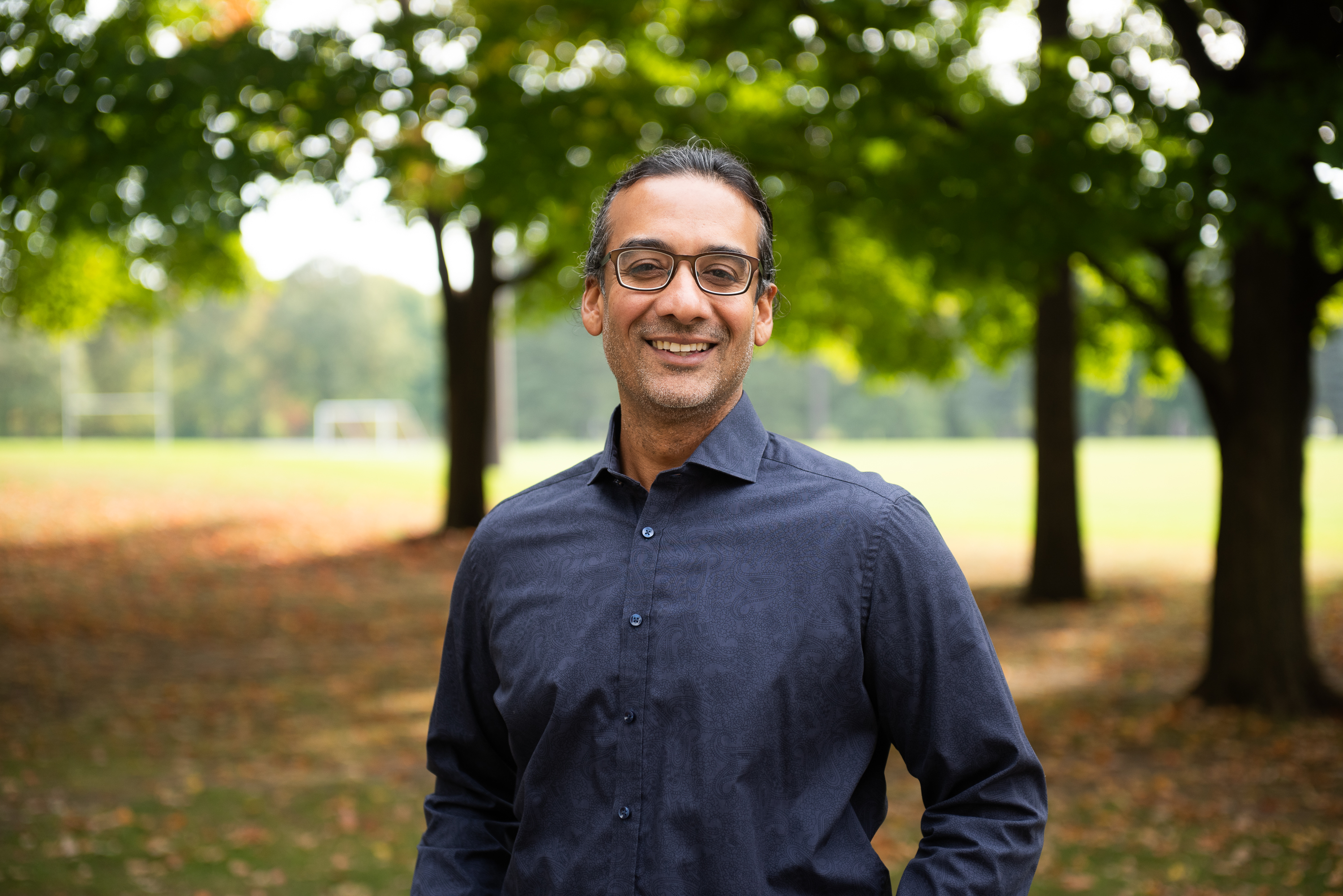
Professor; Canada Research Chair (Tier 1) in Environmental Health Sciences(cross-appointed in the Department of Natural Resource Sciences)
|
Degrees
BSc 1999 (Queen’s)
MSc 2002 (British Columbia)
PhD 2005 (McGill)
Short Bio
Professor Nil Basu holds a Canada Research Chair (CRC) in Environmental Health Sciences at McGill University where he is jointly appointed in the Department of Natural Resource Sciences and the School of Human Nutrition. Professor Basu also holds appointments in McGill’s School of the Environment and the Department of Epidemiology, Biostatistics and Occupational Health, as well as an adjunct professorship at the University of Michigan School of Public Health. The goal of Professor Basu's research is to design, validate, and apply innovative and sustainable approaches to address the most pressing societal concerns over toxic chemicals in our environment. Professor Basu’s research is multidisciplinary (bridges environmental quality and human health), inter-sectoral (most projects driven by stakeholder needs, notably government and communities), and driven by environmental justice concerns. Professor Basu has assumed national and international leadership positions to bring together diverse teams to tackle grand challenges in the field (e.g., chemicals management, mercury pollution, electronic waste). Professor Basu’s research activities are situated at the interface of science and policy with notable involvements with the UN Minamata Convention, Canada’s Chemicals Management Plan, and the Lancet Commission on Pollution and Health. His team’s work has been supported by more than $40M in research funding, resulted in >200 peer-reviewed papers, and afforded training opportunities to over 100 students including 18 postdoctoral fellows and 12 PhD students.
Awards and Recognitions
2013-2023 – Canada Research Chair (CRC) in Environmental Health Sciences
2021 – OECD Cooperative Research Program (CRP) Fellowship
2013 – Excellence in Teaching, UM School of Public Health
2009 – Environmental Health Sciences Communication Fellow
Active Affiliations
Editor, Environmental Toxicology and Chemistry
Open Ended Scientific Group, UN Minamata Convention Secretariat
Lead, AMAP Mercury Assessment – Human Health
Steering Committee Member, International Consortium to Advance Cross Species Extrapolation in Regulation
Advisory Board Member – GMOS Training Program
Science Advisory Board Member, Methylmercury Research Advisory Committee for Health Canada
Member, UN Global Mercury Partnership
Member, Science Council, Society of Environmental Toxicology and Chemistry (SETAC)
Member, McGill Center for Indigenous Peoples’ Nutrition and Environment (CINE)
Research Interests
The objective of Prof. Basu’s research program is to design, validate, and apply innovative and sustainable approaches to address the most pressing societal concerns over toxic chemicals in our environment.
To realize lasting translational impact, the team’s research has been built on three pillars:
- Intersectoral Empathy: Grand challenges articulated by stakeholders from across government offices, vulnerable communities, and the private sector drive the research agenda, and these are pursued in a collaborative manner.
- Multidisciplinary Knowledge: A deeper understanding can only be realized when toxicological responses are scaled across species (i.e. humans and wildlife) and along multiple tiers of biological organization (from molecular to individual to ecosystem), which in turn are integrated across the natural, social, and medical sciences.
- Environmental Justice: Contamination is a human rights issue and so it is necessary to educate society about inequities, empower communities to take action, and communicate the evidence base so that responsible, and not regrettable, decisions are taken.
The ultimate goal of Prof. Basu’s program is to conduct excellent research in the broader fields of environmental science (ecotoxicology and genomics) and public health (exposure science and epidemiology) such that outputs may be effectively disseminated to diverse stakeholders (e.g., students, policy makers, scientists, community partners) and lead to public health actions and policies that contribute to improve environmental quality and human health in Canada and internationally.
Current Research
- Innovating environmental biotechnology: A series of projects that bring together advances in molecular biology, computational toxicology, and high-throughput approaches to tackle environmental pollution, including the EcoToxChip Project.
- Community driven research: Public health- and environmental justice-oriented projects focused on Indigenous Peoples and also the informal sector work sector.
- Global synthesis and policy: Research and actions focused on distilling scientific results for policy uptake, e.g., chemicals management, Minamata Convention, systematic reviews.
Courses
